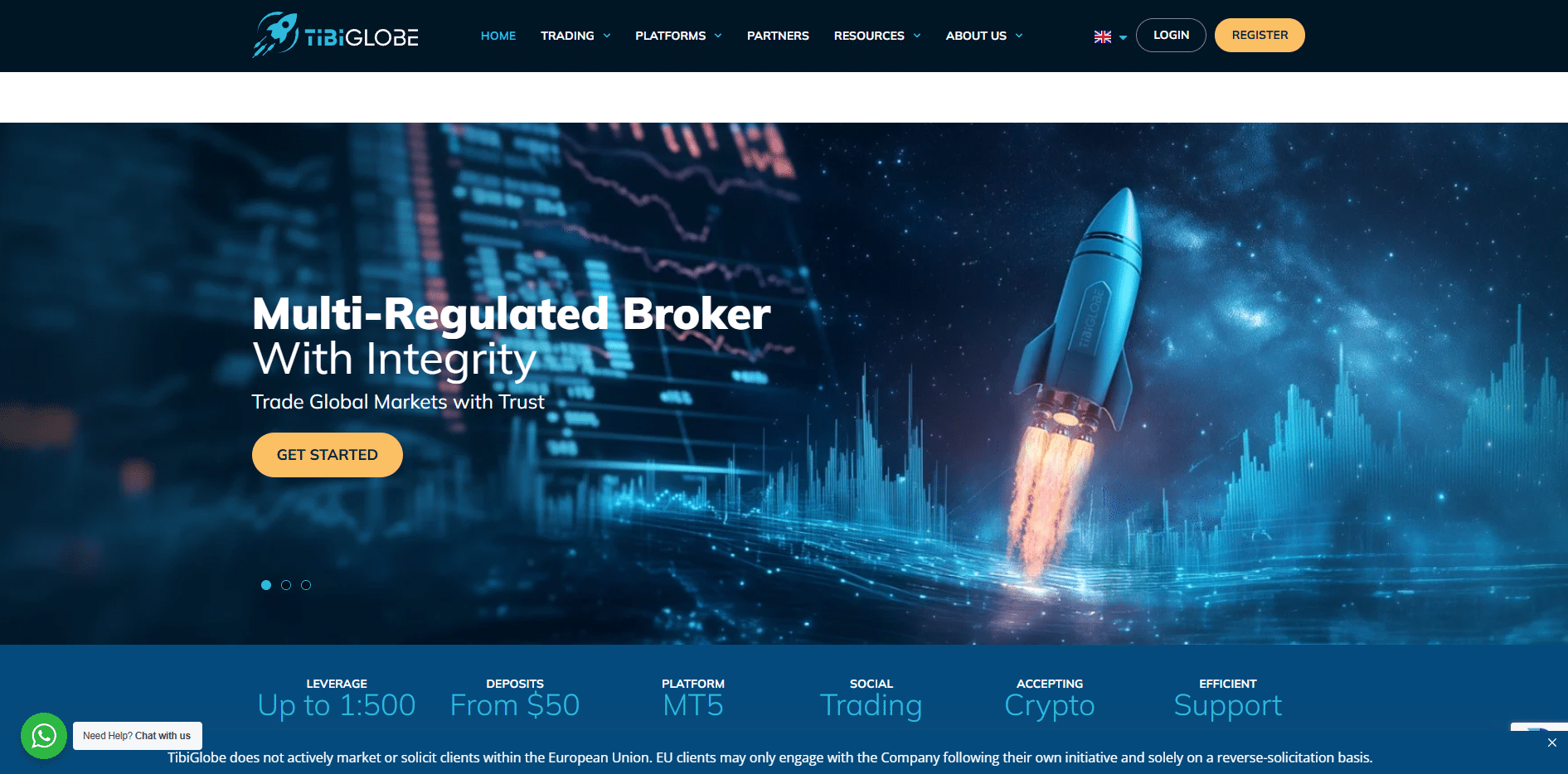Profile
This Kruger Exchange review outlines the platform’s status as a multi-asset digital currency exchange and OTC trading desk based in South Africa. It offers services in cryptocurrencies and limited fiat exchange, but does not operate as a licensed forex or CFD broker. Kruger Exchange is targeted primarily at retail crypto users and local high-net-worth individuals seeking crypto-to-fiat liquidity.
Regulation and Safety
Kruger Exchange is not licensed by the FSCA as a financial service provider. It operates under the legal entity Kruger Exchange (Pty) Ltd and follows local anti-money laundering procedures. However, it is not authorised to offer derivative products or leveraged forex trading under South African law.
- Not regulated by FSCA, FCA, or ASIC
- Registered business entity in South Africa
- KYC and AML checks are enforced on user accounts
Execution Model and Trading Platforms
Kruger Exchange operates a centralised OTC and spot crypto exchange model. There are no derivatives, margin, or leveraged products. Available platforms include:
- Proprietary Web Interface
- Private OTC desk via concierge communication
MetaTrader, FIX API, and VPS services are not offered. Trading is done manually or through a simple web dashboard.
Markets and Instruments
Kruger Exchange focuses on crypto and crypto-to-fiat settlement. Supported assets include:
- Cryptocurrencies: BTC, ETH, USDT, USDC, XRP
- Fiat settlement: ZAR, USD (OTC only)
- No forex pairs, stocks, or commodities
Kruger does not offer traditional instruments like EUR/USD or indices. Its offering is crypto-native and cash-settled.
Accounts, Spreads and Leverage
There are no tiered trading accounts. All users must pass full KYC. Conditions include:
- Spreads: Variable based on liquidity and OTC volume
- Commissions: Spread-inclusive pricing
- Leverage: None
- Minimum trade: Typically R1,000 or $100 equivalent
Funding and Base Currencies
Supported funding currencies and methods include:
- Bank transfers (ZAR via South African banks)
- Crypto deposits (BTC, ETH, USDT, USDC)
- No card payments or PayPal supported
Withdrawal and deposit times vary based on blockchain congestion and local banking hours.
Client Protections and Features
- KYC and AML enforced during onboarding
- Crypto cold storage policy (unspecified)
- No FSCA investor protection or compensation fund
- Basic 2FA enabled for account security
- No insurance or audit statements published
Institutional and Retail Offering
Kruger Exchange serves both OTC institutional clients and retail users:
- Concierge desk available for high-value trades
- No FIX API or institutional-grade execution
- White-label or B2B solutions not offered
Pros and Cons
Pros
- Local ZAR on-ramp for crypto users in South Africa
- Private OTC desk for high-value transactions
- Wide crypto acceptance with fiat settlement
- No derivatives risk or margin calls
Cons
- Not FSCA-regulated as a forex or CFD broker
- No leveraged forex, stocks, or commodities
- Minimal transparency on custody and security
- No platform for technical trading or analysis
- No investor protection or insurance coverage
Frequently Asked Questions
Is Kruger Exchange regulated?
No, Kruger Exchange is not regulated by the FSCA and does not hold a financial service provider license in South Africa.
What can I trade on Kruger Exchange?
You can trade cryptocurrencies like BTC, ETH, and USDT, and convert them to ZAR or USD through the OTC desk. Forex trading is not supported.
Does Kruger Exchange offer leverage?
No, Kruger Exchange does not offer margin trading or leveraged products. All trades are settled on a spot basis.
Is MetaTrader supported?
No, Kruger Exchange does not support MetaTrader or any downloadable platforms. Trading is web-based or OTC.
Is Kruger Exchange safe?
While it enforces KYC/AML and offers crypto cold storage, the exchange is not licensed or covered by investor compensation schemes.


